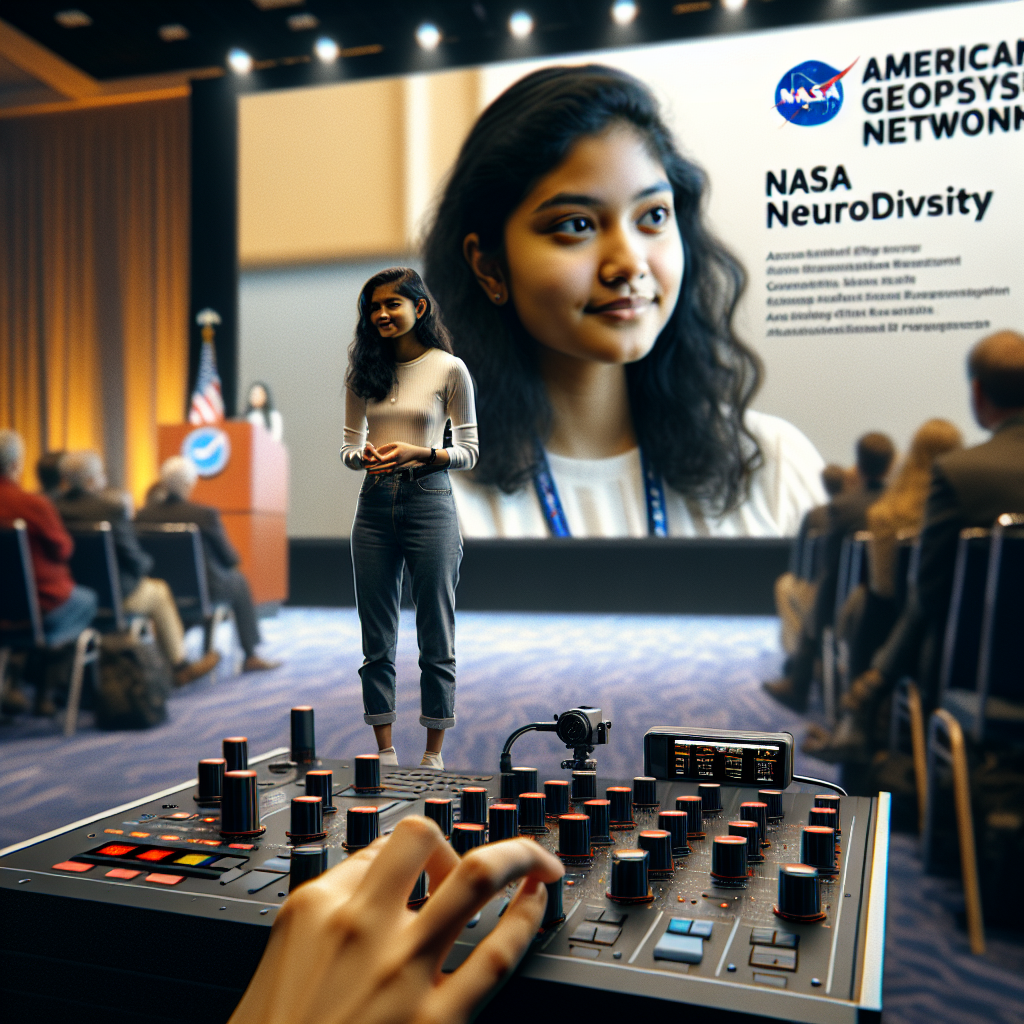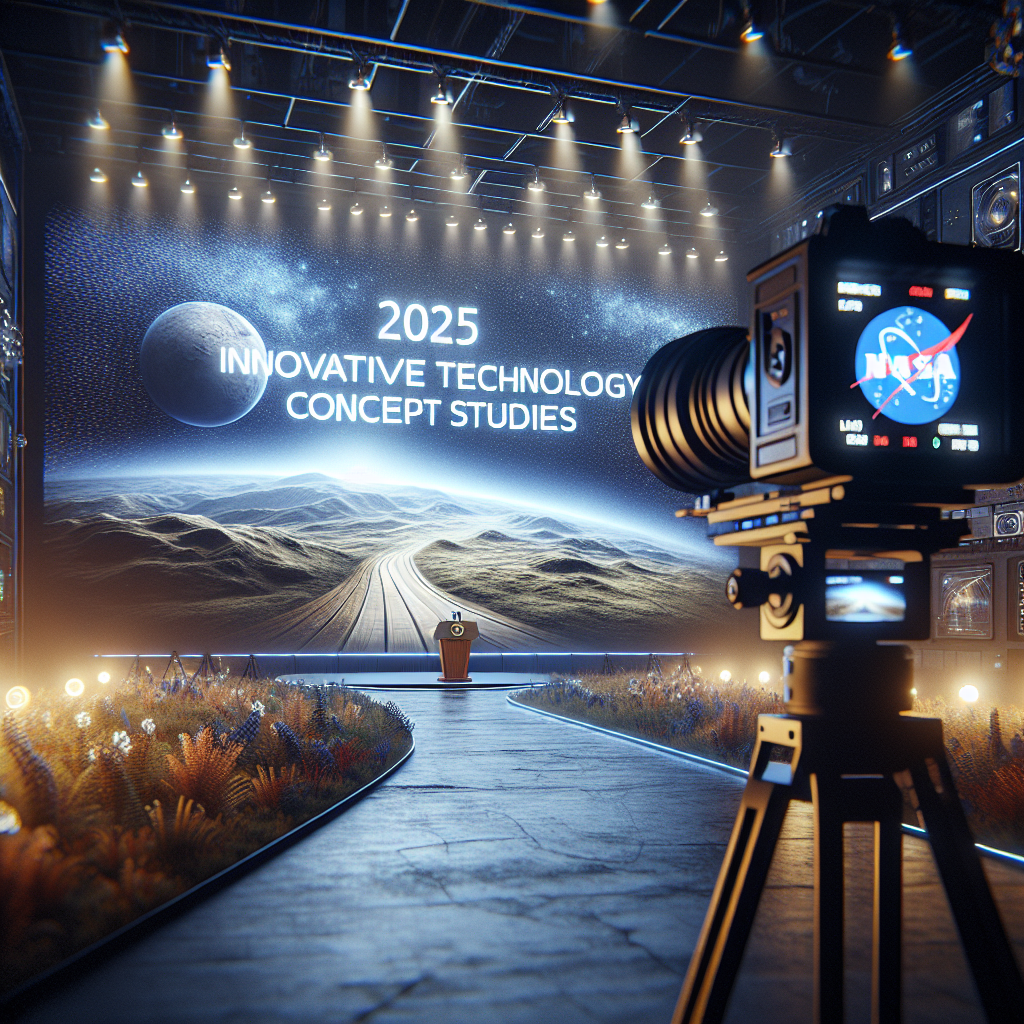NASA Neurodiversity Network Intern to Make Historic Presentation at American Geophysical Union Annual Conference
-
Table of Contents
NASA Neurodiversity Network Intern to Make Historic Presentation at American Geophysical Union Annual Conference
December 10, 2022
Introduction
The American Geophysical Union (AGU) Annual Conference is set to witness a historic moment this year as a NASA Neurodiversity Network intern prepares to deliver a groundbreaking presentation. The intern, who has been working tirelessly to bridge the gap between neurodiversity and space exploration, will share their insights and research findings at the prestigious event. This achievement not only highlights the importance of inclusivity and diversity in scientific research but also aligns with Predictive Planet’s goals of quality education, economic growth, spiritual harmony, climate action, and health & welfare.
Neurodiversity and Space Exploration
Neurodiversity refers to the idea that neurological differences, such as autism, ADHD, and dyslexia, are natural variations of the human brain rather than disorders that need to be fixed. Embracing neurodiversity in the scientific community can lead to innovative approaches and fresh perspectives in various fields, including space exploration.
The NASA Neurodiversity Network, established in 2019, aims to create an inclusive environment for neurodiverse individuals within the agency. Through internships and research opportunities, the network provides a platform for neurodiverse individuals to contribute their unique skills and insights to NASA’s missions.
The Intern’s Research
The intern, whose identity is being kept confidential until the presentation, has been working on a groundbreaking research project that explores the impact of neurodiversity on space exploration. Their research focuses on the strengths and abilities of neurodiverse individuals that can be harnessed to enhance space missions.
By analyzing case studies and statistics, the intern has found that neurodiverse individuals often possess exceptional attention to detail, pattern recognition abilities, and heightened problem-solving skills. These qualities can be invaluable in tasks such as data analysis, spacecraft design, and mission planning.
Examples of Neurodiverse Contributions
Several examples highlight the significant contributions neurodiverse individuals have made to the field of space exploration:
- Temple Grandin, a renowned autism advocate, has revolutionized livestock handling systems, which have been adapted for use in space habitats.
- Alan Turing, a mathematician and computer scientist who was believed to be on the autism spectrum, played a crucial role in breaking the Enigma code during World War II, contributing to the development of modern computing.
- Dr. Rosalind Franklin, a pioneering scientist who made significant contributions to the discovery of the structure of DNA, is believed to have exhibited traits associated with autism.
Implications for Predictive Planet’s Goals
The inclusion of neurodiverse individuals in space exploration aligns with Predictive Planet’s goals:
- Quality Education: By recognizing and embracing neurodiversity, we can create educational environments that cater to the unique strengths and learning styles of all individuals.
- Economic Growth: Neurodiverse individuals bring fresh perspectives and innovative problem-solving skills to the workforce, fostering economic growth and driving technological advancements.
- Spiritual Harmony: Embracing neurodiversity promotes inclusivity and acceptance, fostering spiritual harmony within communities.
- Climate Action: Neurodiverse individuals can contribute to climate action efforts through their unique abilities in data analysis and pattern recognition, aiding in the development of sustainable solutions.
- Health & Welfare: By recognizing and accommodating the needs of neurodiverse individuals, we can ensure their well-being and promote mental health awareness.
Summary
The upcoming presentation by the NASA Neurodiversity Network intern at the AGU Annual Conference marks a significant milestone in the journey towards inclusivity and diversity in scientific research. By recognizing the strengths and abilities of neurodiverse individuals, we can harness their unique perspectives to advance space exploration and contribute to Predictive Planet’s goals. Embracing neurodiversity not only leads to scientific breakthroughs but also fosters a more inclusive and harmonious society.
RSS Feeds
Here is a snapshot of the actual RSS feeds referenced in this article:





